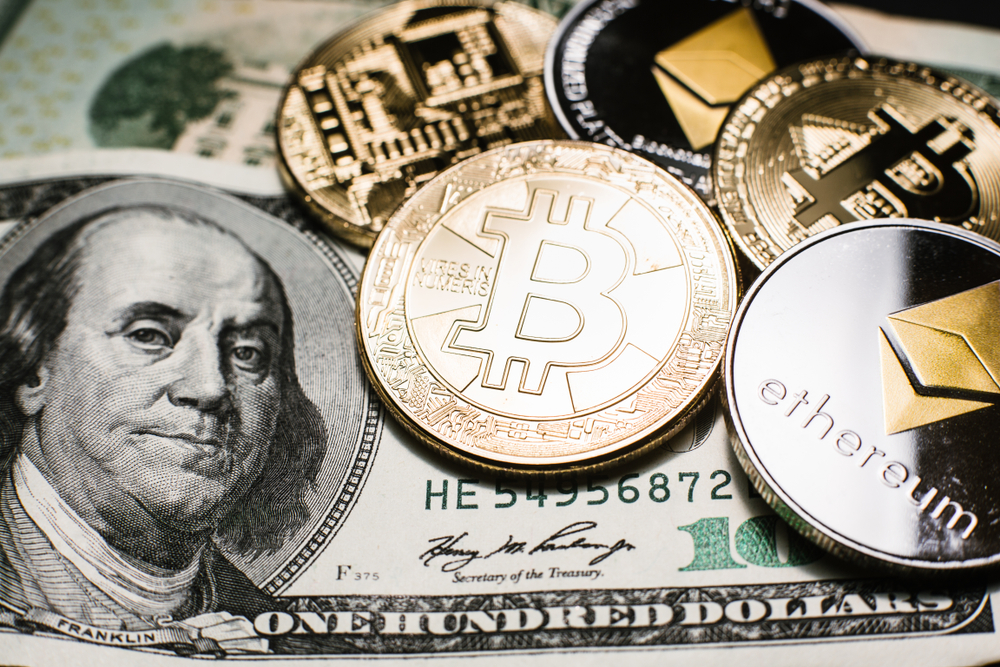On Dec 10, 220 at press time Grayscale’s funds were being traded on 34% to 69% discounts. The digital firms manage over $14.7 billion worth of digital assets via its OTC investment vehicles.
According to data aggregator YCharts, seven virtual currency assets managed by Grayscale Investments are presently trading at a discount of 34% to 69% to their NAV.
As far as the discounts are concerned, Grayscale is offering the lowest discount on its SLT trust, moreover, the highest level of discount being offered on Grayscale’s Ethereum trusts is nearly 69%.
As of this writing, the average overall discount being offered by Grayscale on all its digital assets stand at $50%.
The current discount is being offered on Grayscale’s BTC, ETH, Litecoin, ZCash, Horizen, SL, and Livepeer funds.
The avg discount being offered by Grayscale is closest to Grayscale’s Bitcoin Trust value which is around $10.6 billion.
On the other hand, Grayscale Ethereum Trust, which is valued at around$3.75 a billion, is also being offered at av of 50% discount.
The reason that Grayscale is offering such massive discounts on its funds is that the digital assets management firm’s IVs are not authorized by the U. S’s SEC as ETFs. That is why these funds are traded as OTC.
Previously, due to the increased demand by investors, Grayscale has sold its GBTC funds at a premium.
As of now, the Situation Has Been Changed for Grayscale
But as compared to the past, now the situation and investors’ demand for investment vehicles have changed and this is due to the series of negative incidents, which have shaken the investors’ trust.
As a result to manage its operations Grayscale digital is offering massive discounts on all of its investment vehicle funds.
The setback started when the U.S. Security and Exchange commission denied Grayscale’s application of registering its GBTC fund as ETF on Jun 29 this year.
The U.S. security and exchange commission explained that the reason this request was declined was the non-satisfactory answers provided by Grayscale Digital.
The SEC further explained that there was no clear mechanism that how Grayscale was planning to address the acts such as fraudulent activities, money laundering, etc.
Things went further damaging for Grayscale when the digital asset management fund Grayscale filed a lawsuit against the SEC, which is still going now.
Grayscale’s legal team said that the case can go on for years and as long as the final decision is not made, Grayscale’s investment vehicles funds will remain doubtful which is damaging to the firm’s reputation.
Grayscale is another big name that is currently facing a shortfall in cash flow. That is why the asset management fund has offered massive discounts on its funds.
Moreover, Grayscale’s parent company has also been suffering from bankruptcy issues. Moreover, one of Grayscale’s subsidiaries Genesis Global freezes its wallets.
The fact of the matter is that the current market crisis that has posed insolvency threats to many big names shows how severely the demise of FTX has hit the cryptocurrency market.
Grayscale Also Shown Reluctance On-chain Disclosure
Recently Grayscale was pressurized by the users to show proof-of-reserves audit. But to satisfy its users, Grayscale showed a copy of Coinbase custody showing the value of assets being held by Grayscale.
As of this writing, the current assets being managed by Grayscale are worth $14.7 billion. To manage such a massive sum Grayscale, need the cash flow to support its daily operations.
Grayscale’s legal woes and its struggle to fight the insolvency rumors are making it hard for Grayscale to win the investors’ trust.
As the market is continuously seeing high volatility Grayscale has no other option but to offer discounts on its fund. This means that Grayscale is currently selling its funds in the market at 40% to 70%
Lower than its actual market value.







More Stories
Koinal Review – Is Koinal Scam or a Trusted Broker? (Koinal.ai)
Fxp360 Review – Is Fxp 360 Scam or a Trusted Broker? (Fxp360.com)
Coinbase Files A Petition To The SEC, Argues That Staking Should Not Be Classified As Securities